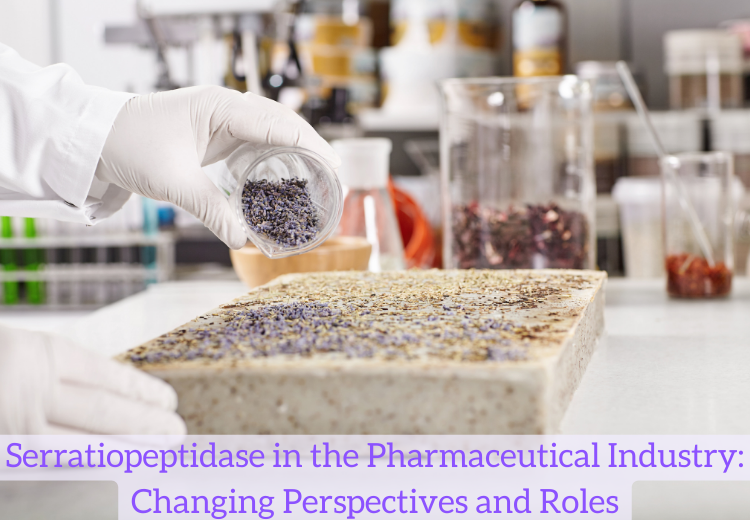Serratiopeptidase In The Pharmaceutical Industry And How It Has Changed Perspectives And Roles


who knew that an enzyme derived from minute things like silkworms could bring revolutionary drugs for mankind. Serratiopeptidase or serrapeptase is an enzyme that is extracted from the guts of silkworms, the bacteria that helps digest the cocoon after the metamorphosis of a silkworm is the major provider of this enzyme and to trigger this we have been able to successfully extract this natural bio enzyme that helps in an array of things, especially in the medical and pharmaceutical sectors.
Serratiopeptidase in Pharmaceuticals is commonly used as an anti-inflammatory catalyzer, this enzyme helps in reducing swelling and pain and has been majorly used in surgeries, especially in oral surgeries but can also vary according to the requirements.
Historically speaking, the first-ever extraction of the serratiopeptidase enzymes took place in the 1960s in the USA and Japan. Scientists were able to extract this enzyme and incorporate it into health drugs and onto the shelves of pharmacies as dietary supplements in Europe and North America.
Table of Contents
ToggleSerratiopeptidase Enzymes – Roles It Plays
This enzyme has some qualities that drove it to become a preferred component in various pharma drugs that have been used in various places. And not just as consumables but also during surgeries both small and big to relieve the patient of pain and swelling. Research results highlight its ability to dissolve blood clots, thus becoming a revelation when it comes to the treatment of asthma. Another trait that was discovered was its ability known as atherosclerosis, which is the ability to prevent arteries from hardening also had the world all worked up. Its usage was seen in treating asthma, sinusitis, and fibroids that occur during breast cancer.
The use of enzymes is slowly taking over the chemical inputs that are used to prove harmful for the environment and the ecosystem. Extraction of enzymes in pharmaceutical industry or for any other industry is much cheaper than its chemical counterpart and also doesn’t affect the environment in any harsh manner. The chemical production leads to the emission of huge amounts of toxic vapours and waste that can prove fatal for the flora and fauna surrounding the plant, and also beyond.
One place that has seen an increasing trend in the usage of serratiopeptidase enzyme is the dental field. The use of medications with serratiopeptidase contents has been increasing and shows good signs of healing inflammation and subsiding pain after dental surgeries, be it small or large-scale operations. The increasing use of this enzyme in the dental sector gives a promising future to the use of biodegradable enzymes instead of non-biodegradable chemicals.
Another place where the usage of serratiopeptidase enzyme has brought fruitful results is in the treatment of the upper respiratory systems. The use of serratiopeptidase for sinusitis, congested throat, and throat pain shows a bright future.
Serratiopeptidase for pharmaceuticals is the new upcoming enzyme that is revolutionalizing the market trend and is possibly going to overtake the chemical-based industries in the near future and the above shreds of evidence prove worthy for the change.
The fact that a naturally occurring enzyme helps in inflammation reduction and also plays a huge role when its other nature is triggered which is anti-exudity, which basically is reducing the substance that is released around the inflamed parts or in layman terms is the puss that is secreted. Serratiopeptidase enzyme usage in medications should see a considerable rise in the days to come and can also overtake the market if the terms hold on to the situations.
Conclusion
All this being said Serratiopeptidase enzymes in Pharmaceutical industries would probably be seeing a rise in demand, and it’s up to the enzyme manufacturers to take hold of the demand and maintain the supply of the same to see a better and rather safer future when it comes to medications.
Also Read Article: Serratiopeptidase Enzyme: Applications & Benefits

